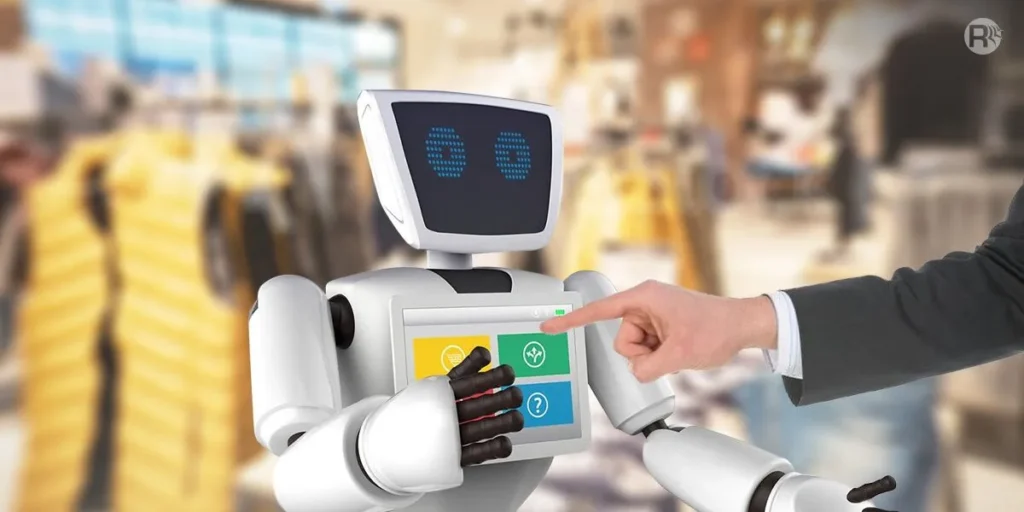The Role of AI in Modern POS Systems

Artificial Intelligence (AI) has rapidly transformed various industries, and the Point of Sale (POS) system is no exception. In the past, POS systems were simple tools for processing transactions. However, with the integration of AI, these systems have evolved into powerful platforms that enhance business operations, improve customer experiences, and provide valuable insights. In this article, we’ll explore the role of AI in modern POS systems and how it is reshaping the way businesses operate.
Enhancing Customer Experience
One of the most significant benefits of AI in POS systems is its ability to enhance the customer experience. AI-powered POS systems can analyze customer data to provide personalized recommendations, tailored promotions, and loyalty rewards. For example, if a customer frequently purchases a particular product, the AI system can suggest similar items or offer discounts on related products. This level of personalization not only improves customer satisfaction but also increases sales and encourages repeat business.
AI also enables POS systems to provide faster and more efficient service. For instance, AI-driven chatbots can assist customers with their inquiries, guide them through the purchasing process, and even handle transactions without the need for human intervention. This level of automation reduces wait times and allows staff to focus on more complex tasks, ultimately leading to a more seamless shopping experience.
Streamlining Operations
AI in modern POS systems plays a crucial role in streamlining business operations. By automating routine tasks, such as inventory management, employee scheduling, and sales tracking, AI reduces the burden on staff and minimizes the risk of human error. For example, AI-powered POS systems can automatically reorder stock when inventory levels are low, ensuring that popular items are always available. This not only improves efficiency but also helps businesses avoid stockouts and lost sales.
AI can also optimize employee scheduling by analyzing sales data and predicting peak hours. This allows businesses to schedule the right number of staff members at the right times, reducing labor costs and improving productivity. Additionally, AI-driven POS systems can generate real-time reports and analytics, providing business owners with valuable insights into their operations and helping them make data-driven decisions.
Predictive Analytics and Forecasting
One of the most powerful applications of AI in POS systems is predictive analytics. By analyzing historical sales data, customer behavior, and market trends, AI can forecast future sales, identify emerging trends, and anticipate customer needs. This information is invaluable for businesses looking to stay ahead of the competition and make strategic decisions.
For example, an AI-powered POS system can predict which products are likely to sell well during a particular season or promotion. This allows businesses to adjust their inventory levels accordingly and capitalize on demand. AI can also identify patterns in customer behavior, such as which products are often purchased together or which times of day see the most traffic. Armed with this information, businesses can tailor their marketing strategies and optimize their product offerings to maximize sales.
Also read: The Pros and Cons of Free vs. Paid POS Systems
Fraud Detection and Security
Security is a critical concern for any business, and AI is playing a vital role in enhancing the security of modern POS systems. AI-powered POS systems can detect fraudulent activities by analyzing transaction patterns and flagging suspicious behavior. For example, if a customer’s spending habits suddenly change or if multiple transactions are attempted in quick succession, the AI system can alert the business owner or automatically block the transaction to prevent potential fraud.
AI can also enhance security by providing advanced authentication methods, such as facial recognition or biometric scanning. These technologies make it more difficult for unauthorized individuals to access the POS system or process transactions, thereby reducing the risk of theft and data breaches.
The Future of AI in POS Systems
As AI technology continues to advance, its role in POS systems is likely to expand even further. In the future, we can expect to see AI-powered POS systems that offer even more sophisticated features, such as real-time language translation for international customers, advanced voice recognition for hands-free operation, and enhanced predictive analytics that can anticipate market shifts before they happen.
Moreover, AI is expected to play a crucial role in the integration of POS systems with other business tools, such as Customer Relationship Management (CRM) software, eCommerce platforms, and supply chain management systems. This integration will create a seamless flow of information across all aspects of a business, enabling more efficient operations and better decision-making.
Conclusion
The integration of AI in modern POS systems is revolutionizing the way businesses operate, offering a wide range of benefits from enhanced customer experiences to streamlined operations and improved security. By leveraging the power of AI, businesses can gain valuable insights, make data-driven decisions, and stay ahead of the competition in an increasingly digital world.
As AI technology continues to evolve, its impact on POS systems is likely to grow, offering even more advanced features and capabilities. For businesses looking to thrive in the modern marketplace, adopting an AI-powered POS system is not just an option—it’s a necessity.
Visit our site at www.dibtech.com.au
Visit our YouTube channel for tutorials Dibtech






